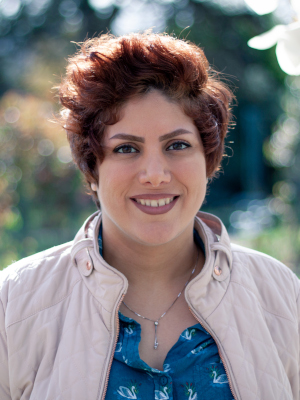Women in hpc’s supercomputing 2023 workshop recap
Posted on 24 January 2023
Women in hpc’s supercomputing 2023 workshop recap
By Mozhgan Kabiri chimeh, SSI Fellow, and Elsa Gonsiorowski.
This article was first posted on the Women in High-Performance Computing website.
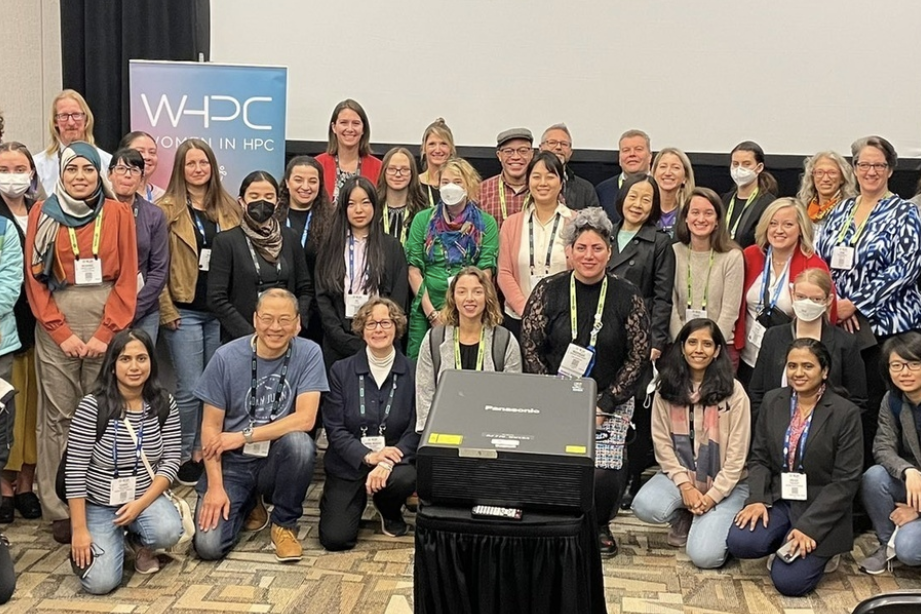 After two years online, the volunteers for Women in High-Performance Computing (WHPC) were pleased to return in person to SC22 in Dallas, Texas to present their fourteenth annual WHPC workshop. Focused on providing a platform for the HPC community to discuss diversity and inclusivity issues, this year’s full-day event was able to explore professional skills development, highlight women who are early in their careers of research, and engage with leaders and managers in HPC to improve the inclusion and retention of diverse teams.
After two years online, the volunteers for Women in High-Performance Computing (WHPC) were pleased to return in person to SC22 in Dallas, Texas to present their fourteenth annual WHPC workshop. Focused on providing a platform for the HPC community to discuss diversity and inclusivity issues, this year’s full-day event was able to explore professional skills development, highlight women who are early in their careers of research, and engage with leaders and managers in HPC to improve the inclusion and retention of diverse teams.
The full-day workshop was divided into two themes: during the morning session, talks were focused on promoting the visibility of women and under-represented groups in HPC. The afternoon session began by highlighting early career women. The workshop concluded with a set of high-impact talks around with tips and practices to help with personal well-being and leveling up your career.
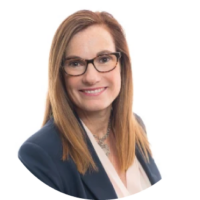 The workshop kicked off with an inspiring invited talk from Trish Damkroger from HPE. Trish spoke about three different ways that you can get support during the lifetime of your career: mentors, sponsors, and coaches.
The workshop kicked off with an inspiring invited talk from Trish Damkroger from HPE. Trish spoke about three different ways that you can get support during the lifetime of your career: mentors, sponsors, and coaches.
A mentor is someone who has been in your shoes and can help give perspective on situations you encounter. Some mentoring relationships are short-term, while some can last for years. When seeking a mentor, have a specific topic in mind. It is up to the mentee to drive and invest in the relationship.
Coaching, or working with a certified executive or life coach, is an investment ideally paid for by your company. Coaches ask open ended questions to help identify real issues, then help people address issues and reach goals through specific practice. In contrast to mentors, coaches are professionals that you work with for a short time to help with a specific skill or career transition.
Sponsorship can be the game changer for women and men from underrepresented minorities. This happens when someone else puts their name on the line for you. Sponsorship is a key way that managers can have a direct impact on diversity, which is critical for overall organizational success.
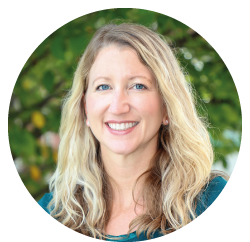 Next we heard from Kate Carter, a technical recruiter at ORNL, on how to effectively negotiate to land the job that you want. She advised everyone to use a confident, firm, and logical speaking voice, rather than coming from an emotional perspective. Negotiation should start with having data to back up your request. Point out accomplishments and how your skills will benefit the company and why you feel you deserve the higher salary. Kate also reminded everyone that there you can negotiate for more than just salary. She also shared some websites (such as Fishbowl, glassdoor, and reddit) where you find information about a potential employer/job.
Next we heard from Kate Carter, a technical recruiter at ORNL, on how to effectively negotiate to land the job that you want. She advised everyone to use a confident, firm, and logical speaking voice, rather than coming from an emotional perspective. Negotiation should start with having data to back up your request. Point out accomplishments and how your skills will benefit the company and why you feel you deserve the higher salary. Kate also reminded everyone that there you can negotiate for more than just salary. She also shared some websites (such as Fishbowl, glassdoor, and reddit) where you find information about a potential employer/job.
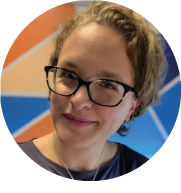 Cristin Merritt, Alces Flight, gave an interesting talk on diversity tax. This is the price women and underrepresented groups pay by participating in diversity groups or events in addition to their own regular work in STEM. Cristin’s takeaway for the group: if you feel pressured to participate, take a step back and think about whether this will help or hinder your career. Be sure to ask yourself if it is really worth it and don’t be afraid to negotiate the role or request.
Cristin Merritt, Alces Flight, gave an interesting talk on diversity tax. This is the price women and underrepresented groups pay by participating in diversity groups or events in addition to their own regular work in STEM. Cristin’s takeaway for the group: if you feel pressured to participate, take a step back and think about whether this will help or hinder your career. Be sure to ask yourself if it is really worth it and don’t be afraid to negotiate the role or request.
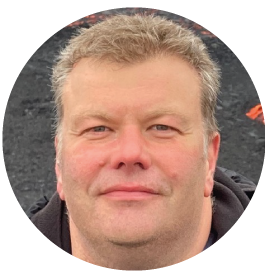 The morning’s short talks concluded with Alan Real from Durham University sharing his experience with fostering an inclusive HPC environment at Durham’s Advanced Research Computing center and as part of the N8 Centre of Excellence in Computationally Intensive Research. Alan shared the ways in which dramatic change is possible, progress can be gradual such that it is most noticeable only over the course of someone’s career. He spoke of the ways that change must be fully supported by management and how small actions, such as improving the wording in a job description, can contribute to the momentum of change.
The morning’s short talks concluded with Alan Real from Durham University sharing his experience with fostering an inclusive HPC environment at Durham’s Advanced Research Computing center and as part of the N8 Centre of Excellence in Computationally Intensive Research. Alan shared the ways in which dramatic change is possible, progress can be gradual such that it is most noticeable only over the course of someone’s career. He spoke of the ways that change must be fully supported by management and how small actions, such as improving the wording in a job description, can contribute to the momentum of change.
The afternoon started with the workshop’s regular spotlight for early career women. We heard about six interesting research projects:
- Lishan Yang, George Mason University
- Ke Fan, University of Alabama at Birmingham
- Nesrine Khouzami, Technische Universität Dresden
- Anjus George, ORNL
- Cassandra Rocha Barbosa, Atos
- Jean Sexton, Berkeley Lab
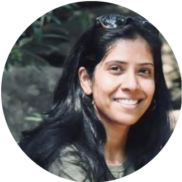 Manisha Salve from thinkparq lead an interactive discussion which engaged the whole audience. She started by asking the audience about how to support early career professionals and encourage them to take risks. The wide ranging discussion touched on the importance of female mentors, way to improve visibility within the community, and how open source contributions can be used to develop and grow new skills.
Manisha Salve from thinkparq lead an interactive discussion which engaged the whole audience. She started by asking the audience about how to support early career professionals and encourage them to take risks. The wide ranging discussion touched on the importance of female mentors, way to improve visibility within the community, and how open source contributions can be used to develop and grow new skills.
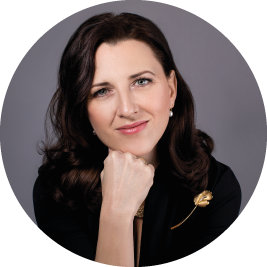 The workshop concluded with a set of powerful, and personal, talks. First was a talk from Helena Liebelt, Deggendorf Institute of Technology. She advocated for diversity, equality and inclusion as an organizational imperative. “Organizations with above-average diversity are 8x more likely to be in the top 10% for financial performance”. Lack of support, work-life imbalance, and unclear job expectation are some of the reasons that lead to burnout in the workplace. Some of the next steps Helena shared are:
The workshop concluded with a set of powerful, and personal, talks. First was a talk from Helena Liebelt, Deggendorf Institute of Technology. She advocated for diversity, equality and inclusion as an organizational imperative. “Organizations with above-average diversity are 8x more likely to be in the top 10% for financial performance”. Lack of support, work-life imbalance, and unclear job expectation are some of the reasons that lead to burnout in the workplace. Some of the next steps Helena shared are:
- Seek day-to-day support by reaching out to co-workers, friends, loved ones or an employee assistance program (if your organization has one).
- Set realistic performance goals by reminding yourself that neither “above and beyond” or perfection is expected. Look for clear guidance, as ambiguity can lead to anxiety and stress; be clear about what needs to be done and how to best get it done.
- Combat work-related stress by setting time aside for sports and wellness programs as well as quality down time. Also look for wellbeing or stress management programs through Employee Assistance Programs.
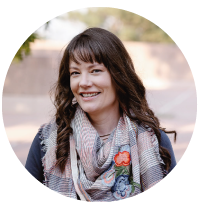 Next, AJ Lauer from NCAR shared interesting statistics on the percentage of the HPC workforce as part of her work-life balance talk:
Next, AJ Lauer from NCAR shared interesting statistics on the percentage of the HPC workforce as part of her work-life balance talk:
- 84% white, 27% woman/nonbinary, 7% LGBTQ, 60% age 35-54 years old [1]
- Parenthood is noted as having a negative impact on career [2]
- White men are having a significantly different experience of HPC occupational climate than other gender/race groups for: Workplace Atmosphere, Perspective Taking, What Companies Do, and Colleagues' Bad Behavior. [3]
Work-life balance looks different to everyone and may even look different at different times in our lives. The important thing is having the support to 'balance' work and home in a way that minimizes stress and maximizes joy. Work-life balance is a major predictor of an employer’s sense of belonging in the workplace and intentional, systemic, change is necessary. Especially as we continue in hybrid work environments.
 Jay Loftsted, Sandia National Laboratory, shared best practices on how to overcome imposter syndrome and how mentoring can help with that. His advice included practicing having a strong presence, appearing confident, and using positive self-talk. His advice was to stop apologizing and to not undersell yourself. He also touched on how colleagues and mentors can help by giving support by asking the right questions: Instead of “How can I help you?”, ask “How can I advocate for you?”.
Jay Loftsted, Sandia National Laboratory, shared best practices on how to overcome imposter syndrome and how mentoring can help with that. His advice included practicing having a strong presence, appearing confident, and using positive self-talk. His advice was to stop apologizing and to not undersell yourself. He also touched on how colleagues and mentors can help by giving support by asking the right questions: Instead of “How can I help you?”, ask “How can I advocate for you?”.
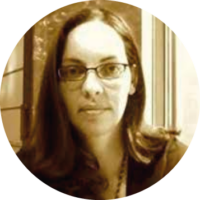 The workshop concluded with a passionate talk from Fernanda Foetter, Voltran Data. She spoke about her own career path and how that led her to being a developer advocate. Her goal now is to build a better work environment for growth and results. She gave some key characteristics of a toxic workplace, including ambiguous expectations, micromanaging, and lack of boundaries. She left us with solutions to understand the signs of burnout and skills to overcome it. Books suggestions included:
The workshop concluded with a passionate talk from Fernanda Foetter, Voltran Data. She spoke about her own career path and how that led her to being a developer advocate. Her goal now is to build a better work environment for growth and results. She gave some key characteristics of a toxic workplace, including ambiguous expectations, micromanaging, and lack of boundaries. She left us with solutions to understand the signs of burnout and skills to overcome it. Books suggestions included:
- Turn The Ship Around!: A True Story of Turning Followers Into Leaders (L. David Marquet)
- Leadership Is Language: The Hidden Power of What You Say and What You Don't (L. David Marquet)
- Give and Take: Why Helping Others Drives Our Success (Adam Grant)
- Grit (Angela Duckworth).
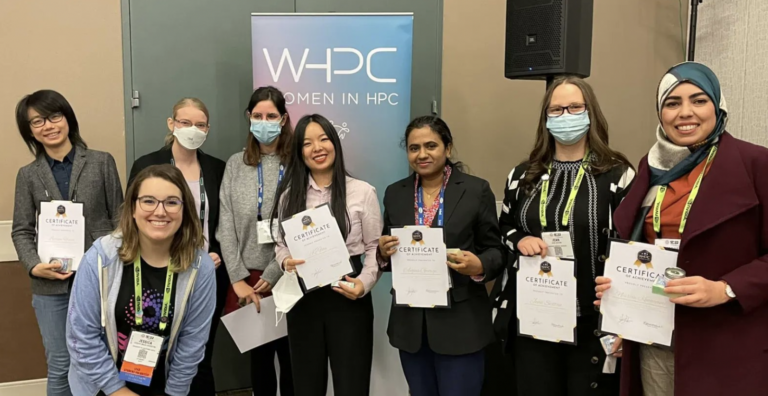
WHPC Workshop committee: Mozhgan Kabiri chimeh, Misbah Mubarak, Gokcen Kestor, Mariam Umar, Jessica Dagostini, Elisabetta Boella, Elsa Gonsiorowski, Lisa Clause, Cristin Merritt.

